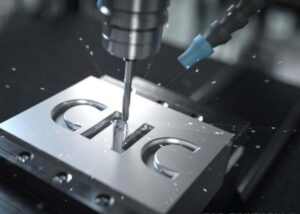CNC Machining Materials, their Impact, And CNC Machining in China
Job Overview

CNC Machining Materials, their Impact, And CNC Machining in China
CNC Machining Materials, their Impact, And CNC Machining in China
Modern manufacturing is changing at a very rapid rate. The advancement in technology and the variety of material and machining options has completely changed the product manufacturing landscape. All aspects of manufacturing have been radically altered by computer numerical control (CNC) machining. Nut when it comes to CNC machining, there are a few things that should be thoroughly considered to get the results manufacturers have in mind. Selecting an appropriate material, making a metal mold, and having access to CNC machining services, especially in countries like China, are the three primary pillars upon which computer numerical control (CNC) machining rests. Here, we’ll examine each of these parts in detail. We will understand their roles, the ways they influence contemporary production processes, and their significance in general.
What Are CNC Machining Materials?
CNC machining materials would include any material that may be used with CNC machinery to mill, drill, shape, or cut. Metals, polymers, wood, ceramics, composites, and even some specialised materials like foam or particular kinds of rubber can be included in this list.
The particular specifications of the item or product being created determine which material is best. Many materials have different qualities, including conductivity, strength, durability, and heat resistance. Because of its versatility and ability to work with a variety of materials, CNC machining is a popular way of producing parts in a wide range of industries, including electronics, medical devices, aerospace, and automobiles.
When it comes to CNC machining, the materials utilized have a significant impact on the product’s quality, functionality, and longevity. Modern developments in material science have provided manufacturers with a plethora of new alternatives. Every choice has its own set of advantages and disadvantages that make it ideal for a certain kind of task. Engineering plastics like ABS, nylon, and polycarbonate are commonplace in CNC machining, alongside metals like titanium, steel, and aluminum are some of the examples of machining materials used today. However, aluminum is the most widely used and preferred material for mold making. Let’s explore the role of aluminum in CNC machining and CNC aluminum mold making.
Aluminum in CNC Machining
Due to its lightweight nature, ease of machining, and corrosion resistance, aluminum has gained popularity in CNC machining. A noteworthy quality of aluminum alloys is their excellent strength-to-weight ratio. So, they’re great for when you need to lighten the load without compromising the structure’s strength. Components for many different industries, such as consumer products, electronics, automobiles, and aerospace, are made using CNC machining and materials like aluminum. Thus, Aluminum has always been the first choice of manufacturers when it comes to effective design and error-free execution. For companies like FirstMold, which give main priority to structural integrity and cost effectiveness, getting the material right is the step towards an effective product process.
Precision and efficiency in production are the goals of advanced manufacturing, which employs state-of-the-art technology.
Depending on your unique requirements, we may craft a solution just for you. Our services can be customized to suit your individual needs, and we can manage everything from tiny batches to large-scale production.
Managing CNC machining projects is something FirstMold has done extensively over the years. They are well-versed in dealing with a variety of CNC materials and can do it in any environment. We have sorted all of our CNC machinable materials into distinct categories so that we may better serve our customers by reducing complexity. Because of our substantial background working on projects of a similar nature, we possess an in-depth knowledge of material properties. Because of this, we are an excellent choice as a consultant for projects ranging from quick prototypes to massive manufacturing runs.
Does the idea of creating CNC aluminum Molds Making Pique your Interest?
Making molds is an important part of many manufacturing processes. Mass manufacture of complicated components may now be done efficiently and precisely. Recently, more and more people have been embracing CNC aluminum mold-making as their preferred way of creating molds. The reason being, it has several benefits over competing methods. Faster machining times, reduced costs, and increased heat conductivity are some of the benefits of aluminum molds over standard steel molds.
The design phase is the initial stage in the process of CNC aluminum mold making. Digital models of the parts you wish to manufacture can be made with the help of CAD (Computer-Aided Design) software. The digitized designs are then translated into machine-readable instructions. Using these blueprints, computer numerical control (CNC) machines carve out exact aluminum molds. The manufactured CNC aluminum molds are long-lasting, have a smooth surface, and are quite accurate in terms of dimensions. Because of this, they are highly prized in settings that demand massive output.
Does CNC Machining in China Seem Familiar to you?
China occupies a leading position across the manufacturing sector worldwide. It’s well-known repute is due to its innovative facilities, novel machinery, and highly talented workers. This is why the majority of companies belonging to different industries and disciplines select China for outsourcing the tasks of CNC machining as it not only enables them to have access to high-quality components but also remain competitive across the industry with its innovative features. Above all cost-effectiveness is the most intriguing factor that inspires companies to consider CNC machining in China.
To further make you clear, here are some tangible benefits of relying on CNC machining in China
· Proximity to suppliers of raw materials
· Offers quick turnaround times
· Ensures scalability
· Cost-effectiveness
· Enables to achieve competitive advantage by exploring the resources and knowledge of Chinese
· Ensure shorter lead times
· Guarantees efficiency
· Excellent logistics and distribution networks
In conclusion, with the ongoing desire to improve materials, methods, and tools, CNC machining has an optimistic future. By increasing the trend of efficiency, automation, and productivity CNC machining if utilized along with the Industry 4.0 project possesses a huge potential to transform the entire manufacturing industry. A joint integration of the Internet of Things (IoT) and AI algorithms, CNC machining will enable manufacturers from various industries to set new trends.
- Total Jobs 382 Jobs
- Category Nafasi za Ajira
- Location Tanzania


